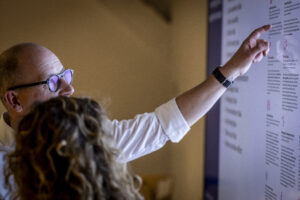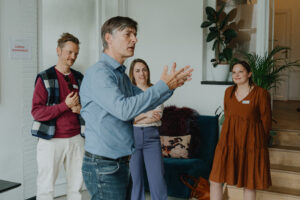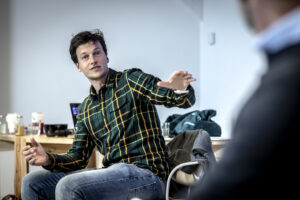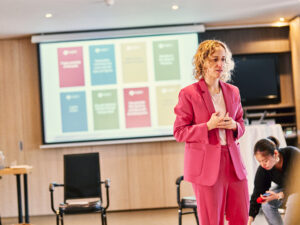The importance of team dynamics
Medical aid at the front lines, under extreme circumstances, requires more than just skill and determination. It requires a team that can work together like a well-oiled machine, even in the most intense and stressful situations. But how does Doctors Without Borders form such teams? What is their secret to creating an environment where professionals can deliver their best work, despite all the pressure?
The answer is more complex than you might think. It’s not just the skills of the individual team members that count. What’s more important are the relationships between those team members and the culture that is created to support them.
I had the privilege of speaking with Robin Vincent-Smith and Laura Cunico about the importance of building strong ties and personal relationships within their teams. They shared stories about the incredible challenges their teams have overcome and the lessons they’ve learned from them.
According to Robin and Laura, the mutual care and understanding that develop between team members are often just as important, if not more important, than the professional skills each individual brings.
Living together as a key to success
At Doctors Without Borders, co-living is the norm, and the team dynamics that result from this play a crucial role in the success or failure of their missions. Robin and Laura told us how they carefully select team members and maintain the balance between respect for the individual and the need to operate as a unit.
A clear mission and set of values
It was fascinating to hear how the values and mission of Doctors Without Borders permeate their approach to team building. It goes beyond simply working towards a common goal; there is a deep, shared passion for helping others that makes their team stronger and more resilient.
Conflict management and resilience
During our conversation, they revealed how they deal with the inevitable conflicts and tensions that arise when working under such intense conditions. They shared how they help their team members to develop resilience, to overcome setbacks, and to maintain a sense of community, even under the greatest pressure.
A taste of what's to come
The stories and insights that Robin and Laura shared with us were fascinating and inspiring. They gave us a rare glimpse into the world of Doctors Without Borders, and revealed the important role that team dynamics and personal relationships play in their success.
We can’t wait to share these stories and insights with you in our BeanMagazine, which will be released in September. Would you like to receive the magazine? Register below!
Want to get inspired?
Click to register! Your fall inspiration is just one Beanmagazine away.





